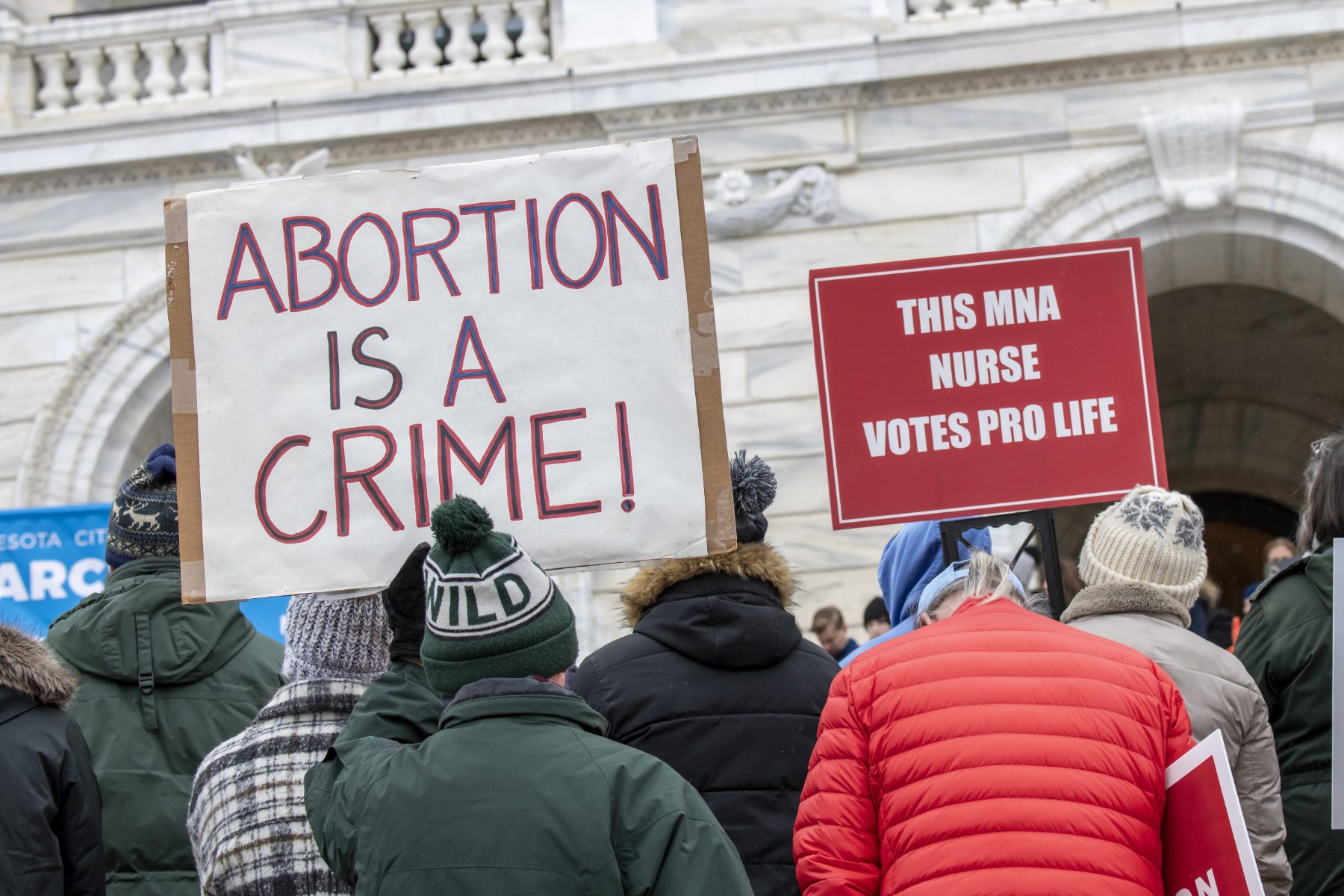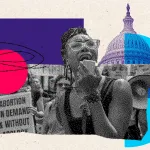Your trusted source for contextualizing the news. Sign up for our daily newsletter.
Six months after the Supreme Court overturned Roe v. Wade, Americans are concerned about the continued legal fallout: A new poll from the Planned Parenthood Federation of America (PPFA) found that a majority of people are worried that medical professionals and patients could be charged with crimes for providing or having abortions.
The data found that 80 percent of Americans are concerned that domestic abuse survivors could be reported by their abuser for getting an abortion. Eighty percent of people are also concerned that law enforcement could investigate people who have miscarriages or stillbirths if they are suspected of getting an abortion. The poll also found that 75 percent of people are concerned that people who get an abortion could be charged with a felony or go to jail.
Additionally, 81 percent of people are concerned that doctors and nurses could be charged with a felony for providing an abortion if the patient’s life was at risk and a prosecutor disagrees. Eighty percent of people are concerned that the risk of being charged with a crime will make doctors and nurses unsure about providing an abortion that could save the life of a patient.
No states currently have criminal penalties for a person who gets an abortion. Misinformation stemming from Roe’s overturn has resulted in confusion among Americans about legal consequences, which the organization that conducted the poll said was an impetus for the poll. The poll shows that the punitive potential of these kinds of situations are a cause of concern amongst Americans, with a large majority — 65 percent to 74 percent — believing that they’re likely to occur or that they’re already happening.
“We were particularly interested in consequences of abortion bans and both how concerning to people, as well as how likely they think these consequences are to happen,” Betsy App, lead analyst at Change Research, which conducted the poll on behalf of PPFA.
“That’s really unique coming out of this, out of the survey. People could say that they’re really concerned about doctors and nurses being charged with a felony. If they don’t think that this is likely to happen, then who cares? But what we’re seeing is that Americans do — two-thirds or more of Americans do think that these consequences are likely to occur,” App said.
Experts are closely watching bills moving through statehouses and actions from state officials. After recent FDA changes that would allow pharmacies to dispense mifepristone, which is used in medication abortions, Alabama Attorney General Steve Marshall said Alabamians who use those pills to end a pregnancy could be prosecuted under a chemical endangerment law. He later walked back that statement.
A bill introduced in Oklahoma would repeal provisions in the state’s near-total abortion ban that prohibits the prosecution of the pregnant person. Another proposed measure in Arkansas would allow anyone who gets an abortion to be tried under the state’s homicide law.
While the bills do make exceptions for the preservation of life of the pregnant person, Elizabeth Nash with the Guttmacher Institute — a research organization that tracks abortion laws in states — says the language too often leaves the door open for negative outcomes, particularly for Black, Brown and low-income communities.
“People who do not have sufficient access to health care, including abortion care, are the ones who would be targeted by these prosecutions. And they’re primarily low income and people of color.”
Nash said that there are deeper roots to these kinds of laws. Nash recalls the landmark case of Whitner v. South Carolina in 1997 in which Cornelia Whitner, a Black woman who struggled with substance abuse, was arrested and charged with child neglect after her third child tested positive for cocaine after he was born. Whitner served 19 months of an eight-year sentence before she was released in November 1993. She returned to prison in 1996 when South Carolina’s attorney general at the time successfully appealed to the court to reinstate her sentence.
“Eventually, years and years and years later, the conviction was overturned. But that is what was happening across the country and continues to happen to particularly people of color — and it’s a part of the issue of lack of access to abortion care in this country,” Nash said. “The criminalization of pregnancy is longstanding.”
The study also found that Americans strongly oppose potential law enforcement tactics like patrolling state borders to prevent pregnant people from leaving the state or giving them pregnancy tests before they do, or patrolling medical offices and hospitals for people attempting to get an abortion. Currently no states have such laws in place.
A lot of people have and continue to study the emotional landscape in the wake of the Supreme Court overturning Roe v. Wade, but App said one particular finding was surprising to her.
“We’re six months at the fall of Roe and still we see a third of Americans saying that they still feel outraged by the U.S. Supreme Court’s decision,” App says. “That’s not new. but it’s something sustained. And that sustained emotion is newsworthy. Shows that people still care.”
App notes that they don’t have data measuring the rate of outrage right after this decision was made and can only speak to this point in time. Despite this, App says she’s keen to keep a finger on the pulse, measuring the data every six months.
“It’s the intensity of the emotions that people are still experiencing six months after the fall of Roe,” App said. “That was surprising to me.”
The survey, conducted over five days from January 2 to January 7, polled 1,443 adults across the country on their opinions on abortions. According to the data, there’s strong support for state-level abortion rights with 70 percent of all Americans supporting “establishing and maintaining the right to an abortion in your state”.
The report makes special note that nearly two-thirds of Americans living in states where abortion is illegal or severely restricted support the right to an abortion in their own state.
“The data is clear: People nationwide, across demographics, unequivocally support abortion rights and do not want state legislators making decisions about their bodies,” said Jenny Lawson, PPFA vice president of organizing and engagement.







